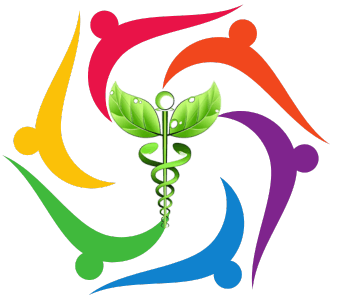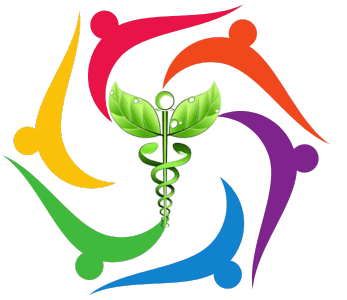#HealthLife
Ten things that can improve your health
.
1. Measure and Watch Your Weight
Keeping track of your body weight on a daily or weekly basis will help you see what you’re losing and/or what
you’re gaining.
2. Limit Unhealthy Foods and Eat Healthy Meals
Do not forget to eat breakfast and choose a nutritious meal with more protein and fiber and less fat, sugar, and
calories. For more information on weight-control foods and dietary recommendations, please check the following
website: www.hsph.harvard.edu/obesity-prevention-source/obesity-causes/diet-and-weight/.
3. Take Multivitamin Supplements
To make sure you have sufficient levels of nutrients, taking a daily multivitamin supplement is a good idea,
especially when you do not have a variety of vegetables and fruits at home. Many micronutrients are vital to your
immune system, including vitamins A, B6, B12, C, D, and E, as well as zinc, iron, copper, selenium, and magnesium.
However, there’s currently NO available evidence that adding any supplements or “miracle mineral supplements”
to your diet will help protect you from the virus or increase recovery. In some cases, high doses of vitamins can be
bad for your health.
4. Drink Water and Stay Hydrated, and Limit Sugared Beverages
Drink water regularly to stay healthy, but there is NO evidence that drinking water frequently (e.g. every 15
minutes) can help prevent any viral infection. For more information on drinking water and coronavirus, please
check the following EPA website: www.epa.gov/coronavirus/coronavirus-and-drinking-water-and-wastewater.
5. Exercise Regularly and Be Physically Active
At this time, at-home workouts may be a good idea. But you can also walk your dog or run outside. Be sure you
know what’s going on in your area and if there are any restrictions or mandatory self-quarantines. For more
information on how to stay physically active while at home, please check the ACSM website: www.acsm.org/
read-research/newsroom/news-releases/news-detail/2020/03/16/staying-physically-active-during-covid-19-
pandemic.
6. Reduce Sitting and Screen Time
Exercise can’t immunize you from your sedentary time. Even people who exercise regularly could be at increased
risk for diabetes and heart disease and stroke if they spend lots of time sitting behind computers. Practically
speaking, you could consider taking breaks from sedentary time, such as walking around the office/room a couple
of times in a day.
7. Get Enough Good Sleep
There is a very strong connection between sleep quality and quantity and your immune system. You can keep your
immune system functioning properly by getting seven to eight hours of sleep each night. For more information,
please check the CDC website: www.cdc.gov/sleep/index.html.
8. Go Easy on Alcohol and Stay Sober
Drinking alcohol does not protect you from the coronavirus infection. Don’t forget that those alcohol calories can
add up quickly. Alcohol should always be consumed in moderation. Please see the recommendations by the AHA:
www.heart.org/en/healthy-living/healthy-eating/eat-smart/nutrition-basics/alcohol-and-heart-health.
9. Find Ways to Manage Your Emotions
It is common for people to have feelings of fear, anxiety, sadness, and uncertainty during a pandemic. To minimize
stress-related weight gain, you use this information about stress and coping provided by the CDC: www.cdc.gov/
coronavirus/2019-ncov/prepare/managing-stress-anxiety.html.
10. Use an App to Keep Track of Your Movement, Sleep, and Heart Rate
#HealthLife
Ten things that can improve your health
.
1. Measure and Watch Your Weight
Keeping track of your body weight on a daily or weekly basis will help you see what you’re losing and/or what
you’re gaining.
2. Limit Unhealthy Foods and Eat Healthy Meals
Do not forget to eat breakfast and choose a nutritious meal with more protein and fiber and less fat, sugar, and
calories. For more information on weight-control foods and dietary recommendations, please check the following
website: www.hsph.harvard.edu/obesity-prevention-source/obesity-causes/diet-and-weight/.
3. Take Multivitamin Supplements
To make sure you have sufficient levels of nutrients, taking a daily multivitamin supplement is a good idea,
especially when you do not have a variety of vegetables and fruits at home. Many micronutrients are vital to your
immune system, including vitamins A, B6, B12, C, D, and E, as well as zinc, iron, copper, selenium, and magnesium.
However, there’s currently NO available evidence that adding any supplements or “miracle mineral supplements”
to your diet will help protect you from the virus or increase recovery. In some cases, high doses of vitamins can be
bad for your health.
4. Drink Water and Stay Hydrated, and Limit Sugared Beverages
Drink water regularly to stay healthy, but there is NO evidence that drinking water frequently (e.g. every 15
minutes) can help prevent any viral infection. For more information on drinking water and coronavirus, please
check the following EPA website: www.epa.gov/coronavirus/coronavirus-and-drinking-water-and-wastewater.
5. Exercise Regularly and Be Physically Active
At this time, at-home workouts may be a good idea. But you can also walk your dog or run outside. Be sure you
know what’s going on in your area and if there are any restrictions or mandatory self-quarantines. For more
information on how to stay physically active while at home, please check the ACSM website: www.acsm.org/
read-research/newsroom/news-releases/news-detail/2020/03/16/staying-physically-active-during-covid-19-
pandemic.
6. Reduce Sitting and Screen Time
Exercise can’t immunize you from your sedentary time. Even people who exercise regularly could be at increased
risk for diabetes and heart disease and stroke if they spend lots of time sitting behind computers. Practically
speaking, you could consider taking breaks from sedentary time, such as walking around the office/room a couple
of times in a day.
7. Get Enough Good Sleep
There is a very strong connection between sleep quality and quantity and your immune system. You can keep your
immune system functioning properly by getting seven to eight hours of sleep each night. For more information,
please check the CDC website: www.cdc.gov/sleep/index.html.
8. Go Easy on Alcohol and Stay Sober
Drinking alcohol does not protect you from the coronavirus infection. Don’t forget that those alcohol calories can
add up quickly. Alcohol should always be consumed in moderation. Please see the recommendations by the AHA:
www.heart.org/en/healthy-living/healthy-eating/eat-smart/nutrition-basics/alcohol-and-heart-health.
9. Find Ways to Manage Your Emotions
It is common for people to have feelings of fear, anxiety, sadness, and uncertainty during a pandemic. To minimize
stress-related weight gain, you use this information about stress and coping provided by the CDC: www.cdc.gov/
coronavirus/2019-ncov/prepare/managing-stress-anxiety.html.
10. Use an App to Keep Track of Your Movement, Sleep, and Heart Rate











